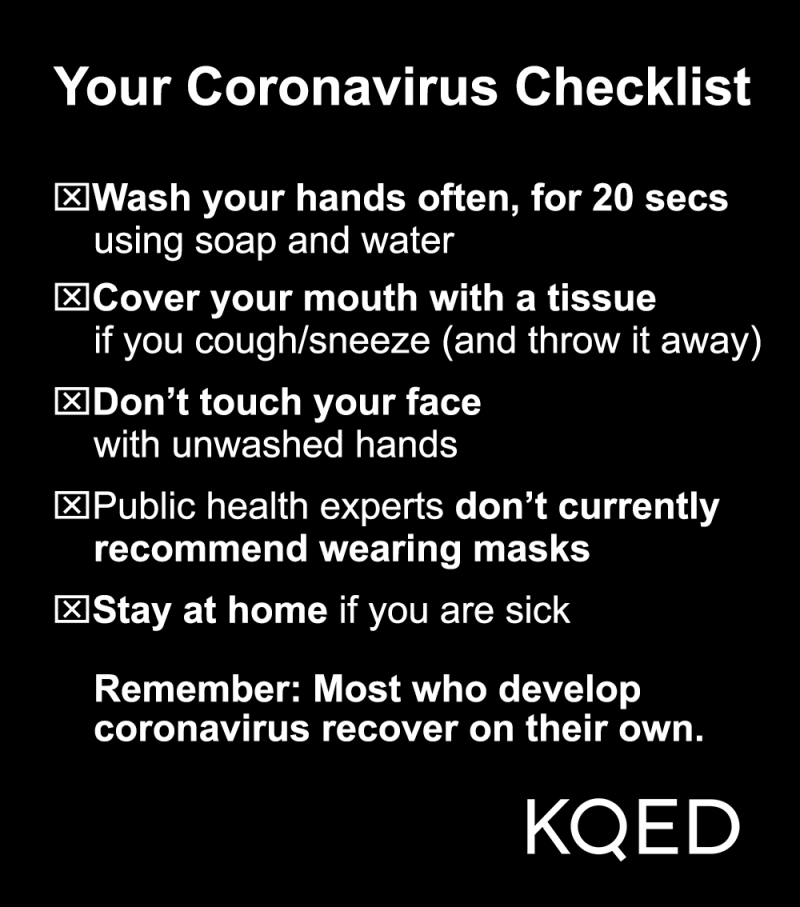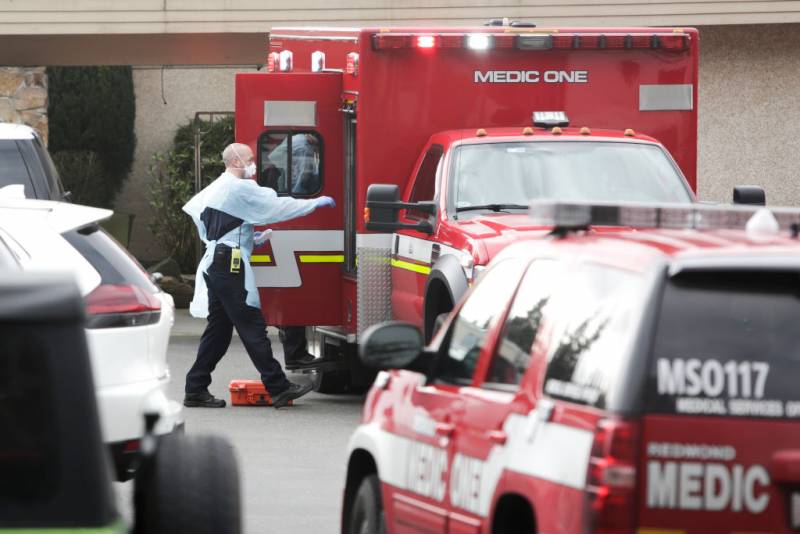How Can I Catch The Virus?
According to early research, COVID-19 likely spreads most frequently through coughs and sneezes, when a droplet from an infected person lands in the mouth or nose of another person, or is inhaled into their lungs. It’s possible someone can get the virus by touching something with the virus on it — a surface or object — and then touching their own mouth, nose, or eyes, but this is not thought to be the main way the virus spreads. Scientists estimate every infected person could spread the virus to 1.5 to 3.5 people if effective containment measures are not in place.
 How Can I Protect Myself?
How Can I Protect Myself?
The recommendations are no different than for colds and flus.
- Wash your hands thoroughly, with soap and water for at least 20 seconds.
- Stay home if you’re sick.
- Cover your cough.
- Avoid touching eyes, nose and mouth with unwashed hands.
- Avoid contact with sick people.
- Greet people with an elbow bump instead of shaking hands.
Current CDC guidelines recommend all travelers avoid nonessential travel to South Korea, China, Italy and Iran due to COVID-19 concerns. Officials advise older and at-risk travelers avoid nonessential travel to Japan.
How Can I Prepare?
- Stock up on food and medications so you can avoid public places like grocery stores and pharmacies.
- Have an ample supple of fever reducers like acetaminophen or ibuprofen.
- Pick up your favorite sick foods, like chicken soup.
- Talk to your boss about working from home.
- Make a plan in case your kids get sick.
Is There a Vaccine?
At this time, there is no vaccine to protect against COVID-19 and no medications approved to treat it.
The majority of people recover from COVID-19 through rest and hydration.
I Feel Ill, How Do I Know if I Have the Coronavirus?
Most people who contract COVID-19 either do not have symptoms or experience mild symptoms like shortness of breath, dry cough and fever. Less than 5% of people will get a runny nose.
The tricky part is that this year’s flu causes the same symptoms.
If you feel sick, stay home and rest. Do not attend work or school. The first step is a visit to your primary care provider. Share your travel history and let them know if you’ve had close contact with others who have been abroad. Learn more in this post.
How Can Communities Prepare?
The CDC offers various checklists to help administrators protect the public.
Who Should I Trust For Updated Information?
Visit your local public health department’s website for the latest information on your community. For statewide updates check the California Department of Public Health. For national updates check the CDC. For global updates check the World Health Organization.
San Francisco released a video about coronavirus facts with Dr. Sunny Pak, Medical Director at the Chinatown Public Health Center in San Francisco.
KQED’s Monica Lam, Michelle Wiley, Danielle Venton and Audrey Garces contributed to this story.

 How Can I Protect Myself?
How Can I Protect Myself?